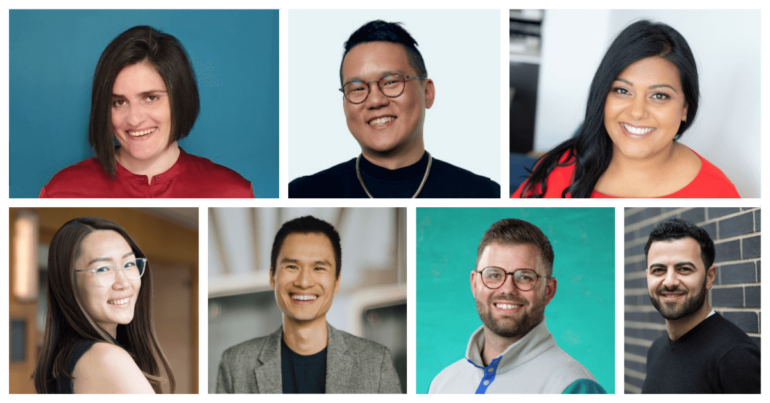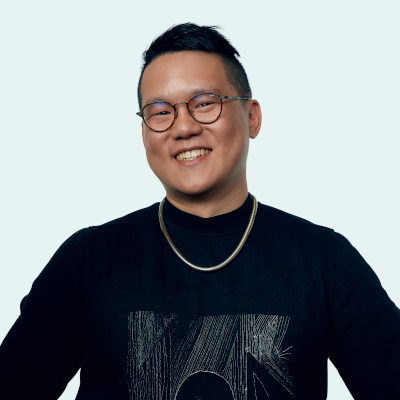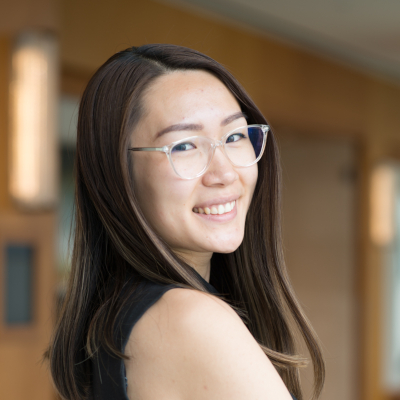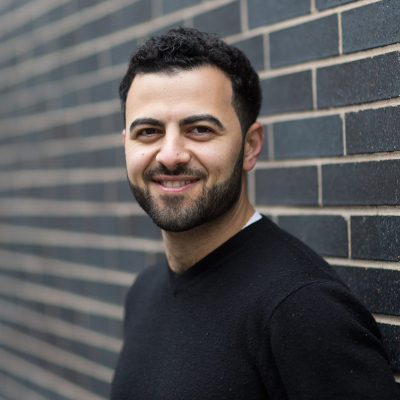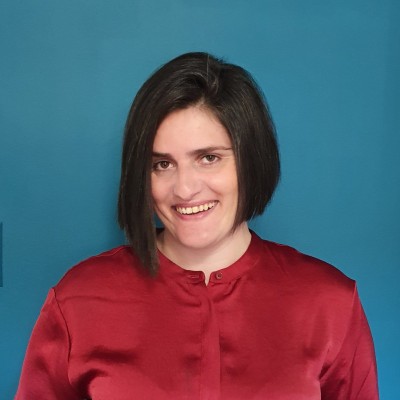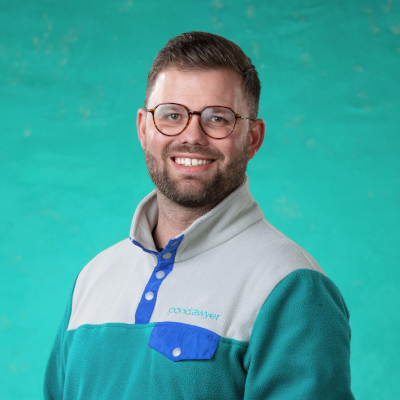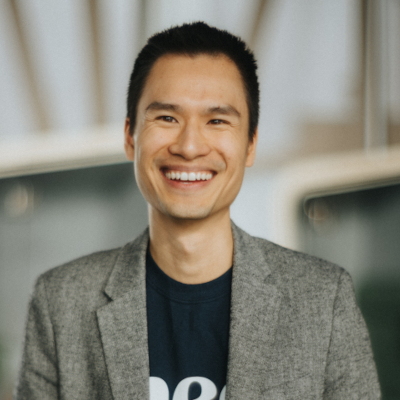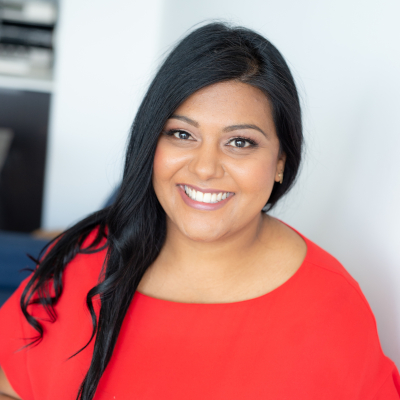The first half of 2023 has been tough for entrepreneurs. Inflation has kept costs high and profits low, and investors have mostly kept their chequebooks closed. But in uncertain times, founders can lean on each other for wisdom and inspiration. It’s the type of support that makes one of the toughest jobs in the world a lot more fun.
We talked to a diverse group of Canadian tech founders about what motivates them during tough times and the importance of learning from their customers and peers.
Meet the founders:
What was your first job?
Nabeil Alazzam got his first lesson in entrepreneurship as a paperboy.
“When I was 10 years old, a SPIF (Sales Incentive Performance Fund) changed my life,” he said. “I was a paperboy in St. Catharines. Subscribers had to stay a customer for two weeks, and then I would get a commission. And it got me thinking… what if I cover the cost of the first two weeks myself? It turns out the cost was less than the commission. So, I pitched the newspaper to new subscribers, and if they said no, I gave them the offer: first two weeks free, cancel anytime. And guess what happened? I quadrupled my newspaper route size.”
“When I was 10 years old… I was a paperboy in St. Catharines. I pitched the newspaper to new subscribers and if they said no, I gave them [an] offer. I quadrupled my newspaper route size.”
He didn’t know it then, but Alazzam would later use his sharp sales skills to start Forma.ai, providing sales compensation software that helps businesses better mobilize their sales teams and optimize performance.
Like Alazzam, Andrew Chau, co-founder of Neo Financial, got his first taste of entrepreneurship when he was a child, working in his parents’ restaurant at just five years old. “I was ‘in charge’ of dishes, peeling potatoes, and eventually was allowed to serve customers… I’d like to think it instilled a strong sense of responsibility in me,” he said.
While the lessons Chau and Alazzam learned early on carried forward into their future careers, Brett Colvin took it one step further. His first job was landscaping for a family friend who would become Goodlawyer’s first angel investor 16 years later! Talk about playing the long game.
Is there a type of tech you wish could develop faster? How would it help your business?
“Anything in health,” said Ivan Zhang, co-founder of Cohere.
“Understandably, there’s a lot of checks and balances in place to make sure we deploy technology in a safe way,” he added. “However, it is frustrating to see how wide the gap is between what we’re running in hospitals and the state of the art. Specifically, I’m most excited about portable ultrasound devices that plug into smartphones/tablets.”
These statements might be a surprise coming from Zhang, who is the CTO of a company that helps businesses embed AI into their products. But it’s clear that the interests of Canadian founders extend well beyond the problems their companies are solving for.
Similarly, Alazzam is interested in more than Forma.ai’s sales compensation software. The founder and CEO wants researchers to hurry up and figure out how we can all live longer. “It’s a shame we haven’t dedicated more of our GDP as a society to solving one of humanity’s biggest problems,” he said.
In three words or less, what’s your take on Generative AI?
“Just getting started.”
– Andrew Chau, Neo Financial
“Useful general intelligence.”
– Ivan Zhang, Cohere
“Augmenting human creativity,” but with a high potential for plagiarism.
– Chenny Xia, Gotcare
“Unlimited possibilities.”
– Anita Ramdas, ShuffleSpace
Rima Al Shikh, Founder of Begin AI, wanted more than three words: “We’ll reach new heights in our collective productivity.”
How many office dogs does your company have?

Say hi to Bear, Rin, and Violet.
Colvin is one of the lucky ones. He said the Goodlawyer office has three pups, including Bear. Zhang (Cohere) told us: “Rin is pretty much always here, but we have special guests from time to time.”
Other founders surveyed said their office buildings don’t allow dogs (!), but the pets often make an appearance on virtual calls. They are part of the team after all.
How much time do you spend understanding customer behaviours? How have those insights impacted your business?
Every founder surveyed said they spend most of their time reviewing and actioning customer insights. Al Shikh (Begin AI) said she spends 95 percent of her time understanding her customers’ behaviours, stating that “a great demo makes a huge difference. When we promise quality, seeing is believing.”
“You’re either solving the pain points your customers face every day or your product will quickly become irrelevant.”
Chau (Neo Financial) said he thinks about his customers every day. “I’m a customer myself, my family is, my friends are,” he said. “I’m always trying to crack the ever-evolving code of what they need and how to deliver it.”
He added that learning that new Canadians and students don’t have a credit history helped push Neo Financial to launch new credit-building and debit-style offerings.
Alazzam said that Forma.AI built one of its earliest features because the company saw how one customer was using a spreadsheet to manually operate their day-to-day sales process. He added, “You’re either solving the pain points your customers face every day or your product will quickly become irrelevant.”
But customer wants and needs are always changing, and founders need to respond accordingly. Anita Ramdas said she realized one of ShuffleSpace’s three client segments had the lowest willingness to pay because the parts of the company’s solution they valued most were not part of their core business.
“We decided to not sell to them anymore and focus on the other two segments that we are solving stronger pain points for,” she said.
How do you ensure you find the time to keep learning in your role?
Podcasts, audiobooks, and book-books came up several times in conversation with our startups. Some founders added that they intentionally carve out time to learn from their staff and the community.
“Being a CEO is never boring… the nature of the role demands that I learn something new.”
Zhang (Cohere) said: “I dedicate time to pair programming with engineers to learn more about their part of the stack. Recently, I did a session shipping some buttons, and in another session, I got to learn about programming CUDA kernels. It’s pretty fun.”
This year, Chenny Xia noted that she is learning more about Indigenous politics and governance as Gotcare continues to service Indigenous communities across Canada. With tens of thousands of registered workers across Canada, Gotcare makes home care more accessible by connecting clients with healthcare professionals based on proximity, specialization, and cultural understanding.
“Being a CEO is never boring… the nature of the role demands that I learn something new,” she added.
Are you an inbox zero or 2,000 type of person?
The responses we received to this question were… wide-ranging. Not to call anyone out, but it seemed like the only fitting way to present the answers was in our first-ever Inbox Emails Tier List.
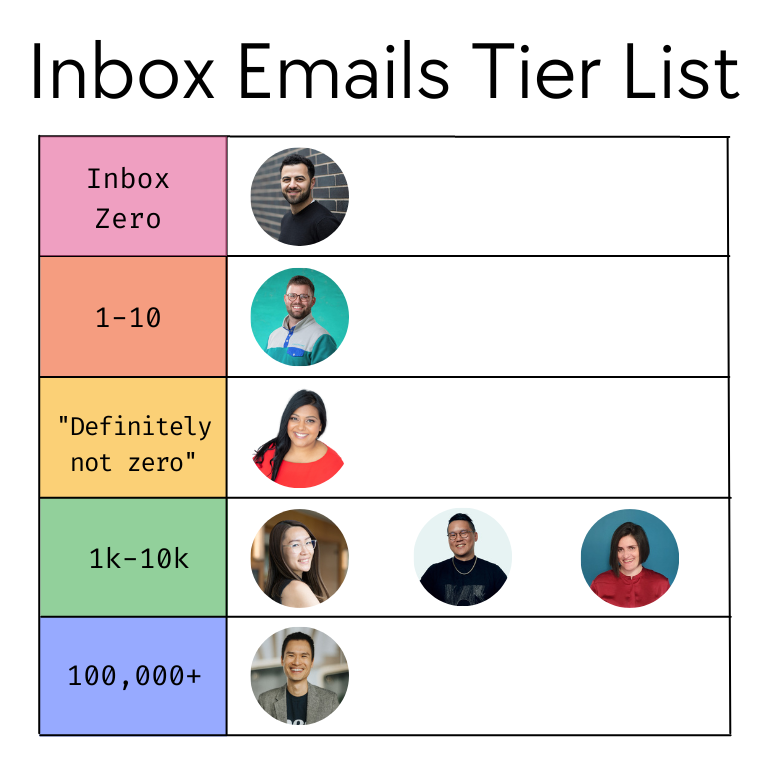
What company, besides your own, inspires you?
No company was named more than once but many of the founders we spoke to chose companies with aspirational founder stories.
Zhang (Cohere) said he’s inspired by Zita Cobb of The Shorefast Foundation for her dedication to her home and ancestry. Xia (Gotcare) chose Patagonia because of its values, while Colvin (Goodlawyer) named ZayZoom and Helcim because of how they’re reshaping the city of Calgary. Keeping it Canadian, Chau (Neo Financial) said he’s inspired by how Tim Hortons is synonymous with Canadian culture, with Ramdas (ShuffleSpace) inspired by another Canadian founder, Knix’s Joanna Griffiths.
The other founders chose companies with aspirational business models.
Alazzam (Forma.ai) is inspired by how Salesforce is reinventing SaaS marketing, and Al Shikh (Begin AI) named Ubisoft and Double Fine Production for building great user experiences and games.
Brought to you by AWS.
AWS helps more startups launch, build, and succeed than any other cloud provider.
Start your cloud journey today.


